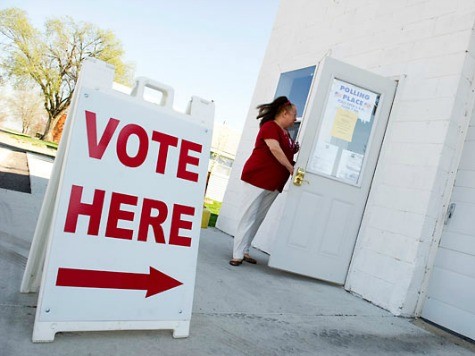
Filings by Connecticut’s Democratic Party show that it has funneled money into the state senate race of Ted Kennedy Jr. (D), the son of the United States senator and the nephew of President John F. Kennedy, through a loophole inserted in the state’s campaign finance law last year, according to the New York Times.
Upon entering the race for Connecticut’s 12th senate district, which includes wealthy shoreline towns, Kennedy, 53, condemned the way in which “money pollutes the political process.”
Kennedy, a healthcare attorney, vowed to participate in Connecticut’s public financing program that offers qualifying candidates state grants.
As the New Haven Independent reported in May, in one appearance, Kennedy said he was relieved that Connecticut’s way with politics did not mirror the “toxic atmosphere of D.C.,” and that he was “committed to raising all the money I need from this district” to run his campaign.
“Friends who live outside the district say, ‘Ted, we want to contribute to you,'” he continued. “And I say, ‘Do me a favor and contribute to the state Democratic Party or the local Democratic Parties in these towns.'”
Candidates for state senate who are able to raise $15,000 in qualifying contributions of $100 or less from at least 300 local voters receive an additional $94,690 from state funds. Kennedy met these conditions in July and received his full grant.
Meanwhile, Hartford lawmakers removed the cap on the amount any particular campaign’s costs can be paid for by state party organizations, previously set at $10,000. Simultaneously, they also increased the amount individuals could give the state party, from $5,000 to $10,000.
Within days of Kennedy’s vow to limit his fund-raising to his district, his family members and business associates began making sizeable donations to the state party.
By the first filing deadline on June 30, Kennedy had received $41,000 from family members and associates. The Democrat Party, in turn, had also spent a similar amount on his campaign.
“There’s never been that level of outside money in a state legislative race,” said Tom Swan, executive director of Connecticut Citizen Action Group, a watchdog organization.” “But if you’re working on a campaign, you’ll do everything you can to win because the changes in the law make it legal.”
“I really believe that one of my strengths is as a collaborator,” Kennedy said. “We need people in government who can collaborate and work together. I grew up in a family that imbued with me with the principles of the Democratic Party, to stand up for fairness, for people, for what’s right.”
“I learned this from my father [the late U.S. Sen. Edward Kennedy], who was incredibly successful in his legislative career, that it is possible to do,” Kennedy added. “When I grew up in Washington, D.C., on many evenings, over at our house for dinner were his Republican colleagues. They talked together. They tried to understand ways in which they could work together. And I believe some of that has been lost in Washington.”
The Times reports that according to the filings, Kennedy received $207,000 from the Democratic State Central Committee by October 16, and that his relatives and business associates have contributed at least $88,000 to the party organization during the same period of time.
Kennedy’s brother, Patrick J. Kennedy, a former U.S. representative from Rhode Island, contributed $10,000, as did Victoria Kennedy, the candidate’s stepmother.
Rory Kennedy, the candidate’s cousin – daughter of Robert F. Kennedy – contributed $1,000, as did cousin Victoria Lawford.
Mark Shriver, son of Eunice Kennedy Shriver, donated $2,000.
Three employees of Kennedy’s healthcare consulting firm, Marwood Group, together contributed $10,000.
Spokesmen for both Kennedy’s campaign and the state’s Democrat Party asserted they followed all laws and regulations regarding campaign financing.
“We’ve done nothing wrong,” said John Murphy, Kennedy’s campaign manager, on Friday, adding that the candidate had raised funds for the state party before and “this is nothing different. There is no quid pro quo.”
According to the Times, the $207,000 bonus has allowed Kennedy’s campaign to pay $111,000 for the services of a team of professional political consultants and pollsters. In addition, he has been able to pay for $500 worth of campaign T-shirts.
“This is an important race in a historically Republican district, with a candidate who has extraordinary potential,” said Devon Puglia, a spokesman for the state Democratic Party on why the party has decided to lavish funds on Kennedy’s race.
Kennedy is running against Bruce H. Wilson (R), 50, a businessman from Madison.
“We all know that money pollutes politics,” Wilson said on Friday, using Kennedy’s own words. “There’s just no other way to say it, and now we have an example close to home in the 12th state senate district.”
While Wilson filmed one television ad at his home at a cost of $400, he said he was walked nearly 200 miles and knocked on 4,000 doors with his campaign manager, Shawn McGowan, who has yet to be paid for his services.

COMMENTS
Please let us know if you're having issues with commenting.